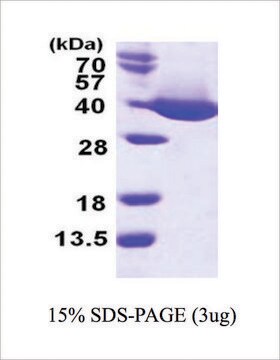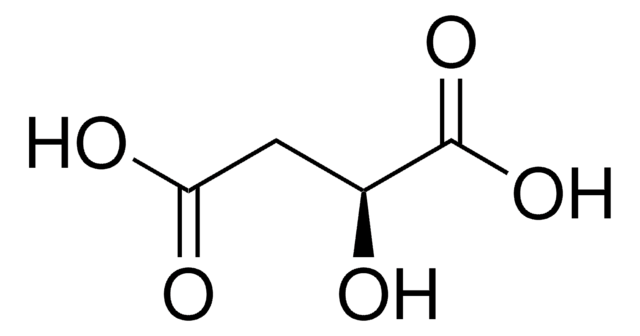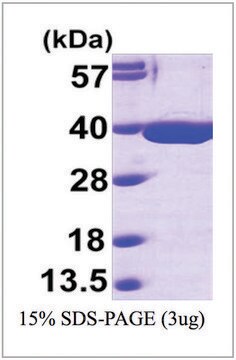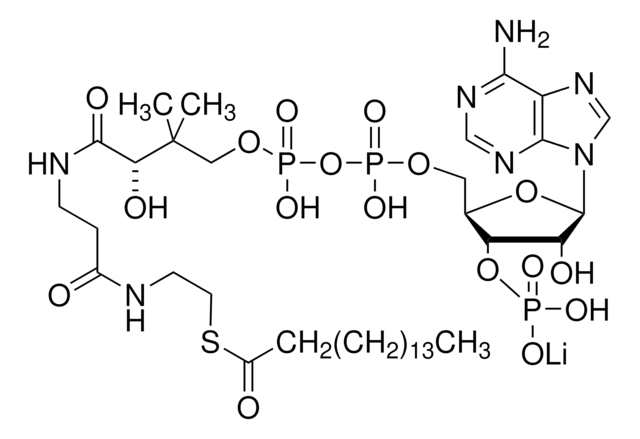SRP6103
MDH1 human
recombinant, expressed in E. coli, ≥95% (SDS-PAGE)
Synonym(e):
MDH-s, MDHA, MOR2, Malate dehydrogenase cytoplasmic
About This Item
Empfohlene Produkte
Biologische Quelle
human
Rekombinant
expressed in E. coli
Assay
≥95% (SDS-PAGE)
Form
liquid
Mol-Gew.
37.4 kDa (342 aa, 1-334 aa + CT His Tag)
Verpackung
pkg of 100 μg
Methode(n)
activity assay: suitable
NCBI-Hinterlegungsnummer
Versandbedingung
dry ice
Lagertemp.
−70°C
Angaben zum Gen
human ... MDH1(4190)
Allgemeine Beschreibung
Anwendung
Biochem./physiol. Wirkung
Physikalische Form
Angaben zur Herstellung
Sonstige Hinweise
Lagerklassenschlüssel
11 - Combustible Solids
WGK
WGK 3
Flammpunkt (°F)
Not applicable
Flammpunkt (°C)
Not applicable
Hier finden Sie alle aktuellen Versionen:
Analysenzertifikate (COA)
Die passende Version wird nicht angezeigt?
Wenn Sie eine bestimmte Version benötigen, können Sie anhand der Lot- oder Chargennummer nach einem spezifischen Zertifikat suchen.
Besitzen Sie dieses Produkt bereits?
In der Dokumentenbibliothek finden Sie die Dokumentation zu den Produkten, die Sie kürzlich erworben haben.
Unser Team von Wissenschaftlern verfügt über Erfahrung in allen Forschungsbereichen einschließlich Life Science, Materialwissenschaften, chemischer Synthese, Chromatographie, Analytik und vielen mehr..
Setzen Sie sich mit dem technischen Dienst in Verbindung.







